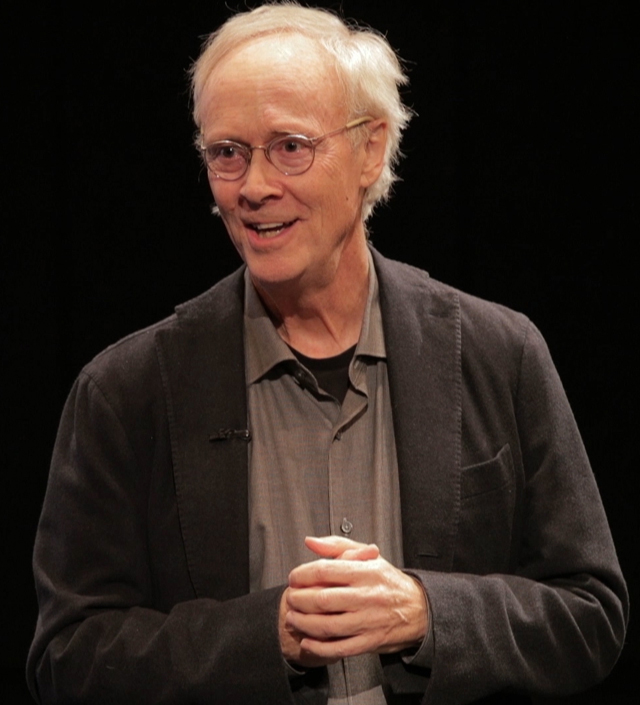
I recently read the book “Four Thousand Weeks” by Oliver Burkeman. The subtitle, “Time Management for Mortals” caught my eye. I wanted more ideas about time management and assumed — a dangerous thing to do — that’s what I’d find here. I didn’t think about the word “mortal” — a bigger mistake! Be prepared for the perspectives this book puts on your “finitude,” i.e., the finiteness of your life. “Time managements is all life is.”
The title of Burkeman’s book refers to the 80 years (rounded) that, on average, we are granted to live our lives. As I write this, I am somewhere in my 4,220th week or so. So, this concept has more meaning when one is past that number. Our mortality is what this book is really about and how you should live your life in that context.
Two key points stood out to me as important principles for serving clients in the second half of life, and also for advisors who have reached this age. First, your time is finite, and second, do only what’s most important.
Point 1: Your Time Is Finite
The problem with planning is that the options we have are infinite but the time we have to implement them is finite. For example, when you’re in your 20s you have what seems to be an infinite amount of time to plan a family. Only 10 years later, many hear their internal clocks ticking, men and women, and think, “Wasn’t it just yesterday when I had all the time in the world?”
When we are young, most of us don’t think about our limitations. As a commercial once said, “There’s no expiration date stamped on your body.” If we live well, we will hopefully extend the years we have on earth. Choice one is to live well.
Data shows a disproportionate share of healthcare costs goes to well-known and behavioral issues, including too much smoking, eating, drinking, stress, and a lack of exercise. You already know this. Did you know that even after open heart surgery caused by lifestyle, an inordinate percentage (as high as 90%) of people do not change their lifestyles?
Age brings clarity
Some of these issues may not seem quite as critical in the first half of our lives. They are more critical and very critical in the second half of our lives.
Case in point; my father gave up smoking at 62 and died of lung cancer at 83. Until then he was in good shape, and he “should” have lived longer. My sister gave up smoking at about 51 and died of lung cancer at 59. I gave up smoking at 42 and so far, I have been in reasonably good health. But I pay a price even today: Not only the loss of family I loved, but living in some level of fear with every CT chest scan.
A great opportunity
As a planner and wealth manager you have an opportunity to bring forward these facts as well as your personal way of life to your clients and your client’s family. Many of us want a “life of significance.” Few of us will be a Lincoln, Einstein, Jefferson, etc. But significance can be achieved in how you raise your children, how you help your community and how you make societal contributions. For example, I recently saw on Facebook an item, Brazil, Sebastião Salgado planted two million trees in 20 years to recreate a forest.” Most of us have heard the Amazon rain forest is being destroyed, but few of us have heard of Sebastião Salgado who seems to be leading a life of significance within his finitude.
As a financial advisor, you can conduct events that focus on both the management of health as well as wealth through meaningful content and events. What a great way to impact your clients and their millennial progeny. You can and do lead a life of significance in helping people lead a life of financial wellness. Help them also lead a life of overall wellness as a part of what you do. The second half of life can be richer than the first half as you expand your thoughts about what impact you can have in your limited time on earth.
Important questions
A great way to build deep relationships is through the quality your questions you ask clients about their infinite number of opportunities. You must be speaking to all relevant family members of the family – both spouses; children as appropriate, especially young millennials; and even clients’ parents as appropriate. (“As appropriate” includes their value to your business.)
Some of the questions I use are in my previous article, “Use Maslow to Help Clients Reach the Top of the Pyramid.” The three “Kinder Questions,” from George Kinder, the “father of life planning.”
As a financial advisor, you should continue to help your clients narrow their choices throughout their lives about what their money is for, because wants as well as needs continually change. As life is finite, you help greatly by helping them implement their dreams as early in their lifetimes as is rational. This is a hugely significant value few others can deliver.
Help your clients understand that a plan is a thought that exists at a point in time and as time and life moves on, plans must move on. Part of your value is knowing that — and reviewing and modifying client plans continually whether major or minor. As life is uncertain, plans are uncertain. That’s reality.
Point 2: Do Only What’s Most Important
The thesis here is there is no time, now or in the future, that you will be totally in control of your work or your time. There will always be more to do and more opportunities for things to do (both work and play) than you will be able to get done. It is highly unlikely you will ever be able to do enough. You must accept the reality that your options are infinite, and your time is finite.
As Burkeman says, “I’m aware of no other time management technique that’s half as effective as just facing the way things truly are.” He goes on to say, “In practical terms, a limit-embracing attitude to time means organizing your days with the understanding that you definitely won’t have time for everything you want to do, or that other people want you to do …”
Prioritize you practice
To best live the second half of life you must define what is most important to you and help your clients do the same. These are the six most important tasks financial advisors must do, and the time commitment as part of the whole pie of tasks:
- Business planning. Minimal time and cannot be delegated
- Relationship management. About half your time. It includes client meetings, other contacts, life and financial planning and the other elements important to relationships that are in your service model. Some components can be delegated but not most direct contact.
- Business development. Up to a quarter of your time. This should not be delegated.
- Practice management. A little of your time. This includes oversight of your teams, and work and communications with external personnel. Delegate when possible.
- Asset/investment/portfolio management. Many elements can be delegated and likely should be as your value-add is limited.
- Learning and improving your business. A modest amount of time and dollars to always be improving what you do. Most should not be delegated.
Time spent on anything else from a work perspective is of limited if any value.
Personal priorities
To best live the second half of life, you must also define what is personally most important to you. For me, there are only two must dos/critical tasks:
- Spend meaningful time with family.
- Spend time on meaningful (as you define it) personal time. This includes mandatory vacations, time with friends, learning, and time with hobbies you truly love.
As you accept the realities that you will not be able to do it all, you’ll have to neglect some things on purpose. Many of us do not answer the phone if we don’t know the caller — and. most callers don’t leave messages, confirming their lack of importance. Most of us delete 50% to 90% of our emails within seconds. The world is polluted, not only with plastic and carbon, but with digital pollution. You can never get it all done and you must accept that without regret. Yes, you will miss doing some potentially important things. That’s your finite life.
Find balance
Know, too, that productivity can be a trap. As you become more efficient, you can complete your tasks more quickly; but it will also create more time that you may try to fill up again. This is like one of Parkinson’s Laws in action: “Work expands to fill the time available.” The more time you make available, the more you take on or the more you’re assigned until you are in overload again. Instead, as you become more productive/efficient, work on the other important things in your business and in your life.
Life is not a dress rehearsal! In the second half of life, we become aware of mortality and “mortality makes it impossible to ignore the absurdity of living solely for the future,” says Burkeman.
The secret to happiness
I also highly recommend reading “Happier” by Tal Ben-Shahar who also says we should be asking, “How can I be happy now and in the future?” Include this in your client discovery thinking. You can also ask, “What would it mean to spend the only time you ever get in a way that truly feels as though you are making it count?”
My wife and I are soon heading to Italy where we’ll live for a month in a rental apartment — my gift to both of us. Other than a few personal guided visits to local towns, we will be learning, seeing, chilling, “pastafying” ourselves, and frequently saying buongiorno and buona sera. My advice to my younger self is to have taken this bucket-list trip well before turning 84-plus.
Here’s a final note, from a book by Johnny B. Truant: “If your life is to matter, it’s not going to matter to the universe. It’s up to you make your life matter in the only way you can: by doing things that make a difference to you, to those around you, and to those whose lives you touch. Time is short. You have exactly NOW to do whatever it is you’re here to do, or to let the inexorable passage of hours and days and years kill your potential like fruit left to die on a vine.”
The second half of life is for you to implement importance and to help your clients implement importance, too.
David Leo is founder of Street Smart Research Group LLC. He is an author, speaker, coach, consultant, and trainer to financial professionals. David has worked with the financial services industry for decades, originally as a consultant with IBM and then with UBS/Paine Webber before starting his own firm. If you would like more information about his services, contact him at David@CoachDavidLeo.com or visit www.CoachDavidLeo.com.







